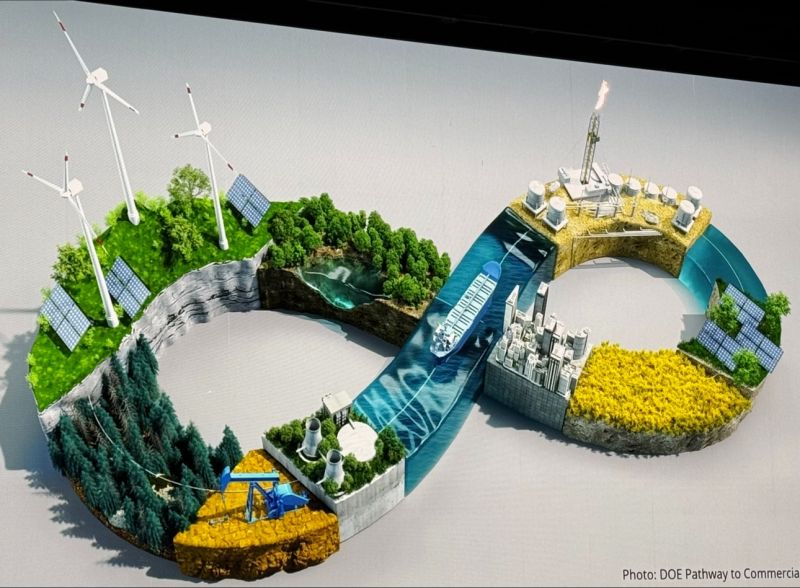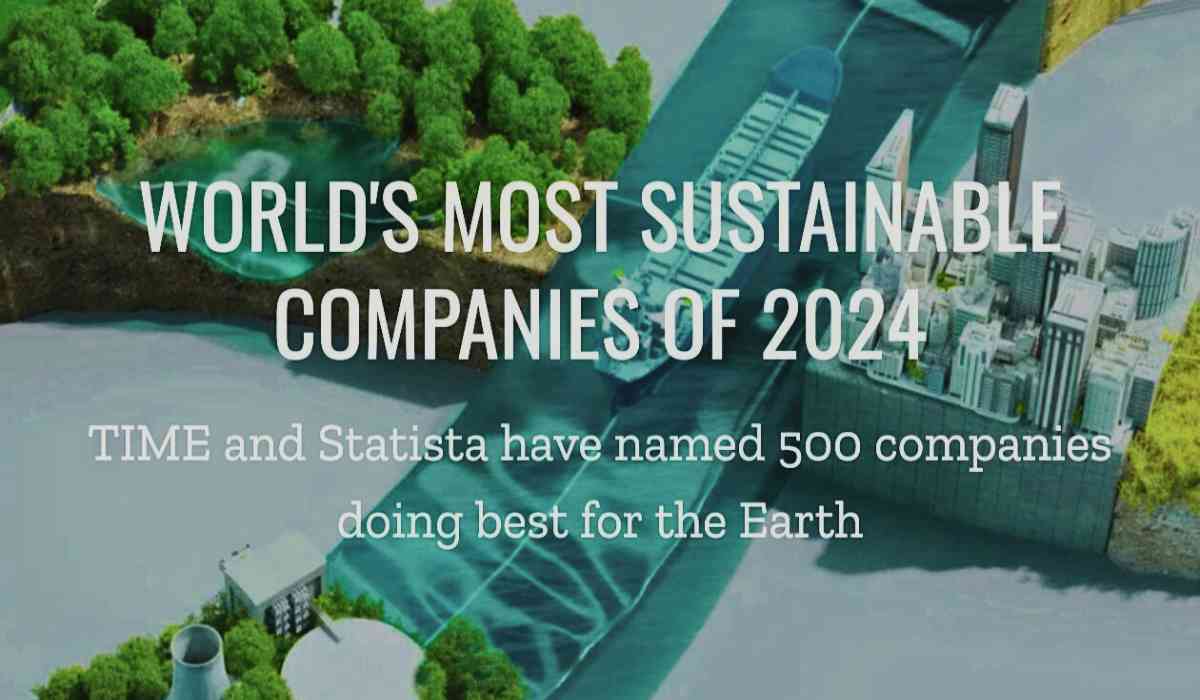These days, corporate responsibility includes sustainability as a critical component, not just a catchphrase. But there's never been a clearer contrast between corporate rhetoric and real operations. The difference between tech giants whose energy consumption rivals that of entire countries and companies that are praised for their environmental efforts serves as a stark illustration of this.
Celebrated Sustainability Leaders
The Times Sustainable Business List 2024, compiled by TIME and Statista, showcases 500 companies making significant strides in sustainability. These companies are not just talking the talk but also walking the walk by making public commitments and achieving measurable environmental impacts.
Schneider Electric: Leading the Way
• Ambitious Goals: Achieving carbon neutrality by 2025.
• Consistent Recognition: Climate score of “A” from the CDP for 12 years straight.
• Core Business Impact: specialises in energy management software and services, helping customers reduce emissions.

Moncler: Luxury Fashion with a Green Touch
• Renewable Energy: Achieved 100% renewable energy use across operations.
• Recycled Materials: Extensive use of recycled materials in production.
Illumina: Biotechnology and Sustainability
• Waste Reduction: Reduce packaging waste by 90%.
• Innovation: Continues to roll out new products with minimal environmental impact.
Indian companies are making strides.
Several Indian companies have also made it onto the list, showcasing their efforts in sustainability:
♦ Tech Mahindra: Score of 69.59

♦ Wipro: Score of 65.49
♦ Mahindra: Score of 65.33
♦ Godrej Properties: Score of 62.61
♦ Hindustan Zinc: Score of 62.52
♦ Airtel: Score of 61.96
♦ Infosys: Score of 58.89
♦ TCS: Score of 56.78
♦ Dr. Reddy's: Score of 56.15
These companies are integrating sustainable practices into their operations, from reducing emissions to increasing the use of renewable energy.

The Global Most Sustainable Companies of 2024: How Time and Statista Identified Them
To determine which companies are the most sustainable in the world for 2024, TIME and Statista have teamed together for the first time. The purpose of this project is to encourage sustainable practices and draw attention to corporate responsibility.
Methodology
1. Exclusion of non-sustainable businesses
Industries Excluded: Companies involved in fossil fuels, deforestation, etc.
Negative Lists: Companies with significant sustainability issues or scandals were disqualified.
2. Commitment and Ratings
External Ratings: Assessment based on CDP ratings, UN Global Compact, Science Based Targets initiative, etc.
Key Criteria: inclusion in the S&P Global Sustainability Yearbook; participation in the UNFCCC Race to Zero; MSCI ESG and SRI evaluations.
3. Reporting and Transparency
Sustainability Reports: Evaluation of the availability and quality of ESG reports.
External Assurance: Ensuring compliance with GRI, SASB, and TCFD standards.
4. Environmental and social stewardship
Environmental Metrics: Emission intensity, reduction rates, energy intensity, and renewable energy use.
Social Metrics: Gender diversity, pay gap, work safety, employee turnover rate.

Results
A sustainability score was computed overall, with a maximum of 100 possible points. The World's Most Sustainable Companies title was given to the top 500 businesses in 2024 based on their scores.
The Colossal Footprint of Big Tech
Despite the achievements of many companies, the narrative of progress contrasts sharply with the realities of some of the world’s largest tech companies.
Google and Microsoft: Energy Giants
► Massive Consumption: Each consumed 24 TWh of electricity in 2023.
► Global Comparison: This energy use exceeds that of 100 countries, including Azerbaijan, Iceland, and Jordan.

Green Pledges vs. Reality
Pledges: Google and Microsoft aim to be carbon-free or carbon-negative by the end of the decade.
Investments: Significant investments in clean energy projects and carbon offsetting.
Challenges: The sheer scale of their operations means their energy use remains colossal.
Bridging the Gap: Real Commitment vs. Greenwashing
The contrast between sustainability leaders and tech giants highlights a critical issue: the discrepancy between corporate sustainability claims and actual environmental impact.
What is true sustainability?
Beyond Offsetting: Genuine sustainability involves reducing emissions at the source, not just offsetting them.
Innovation and Action: Continued innovation and concrete actions are essential for true progress.
Conclusion
The celebration of sustainability achievements must be tempered with a critical look at ongoing challenges. While companies like Schneider Electric, Moncler, and several leading Indian firms provide hopeful examples, the energy consumption of tech giants like Google and Microsoft underscores the complexity and urgency of the sustainability challenge. True progress will depend on continued innovation, transparency, and, most importantly, action that matches the rhetoric.
Inputs from Multiple Agencies
Media from multiple sources
Ⓒ Copyright 2024. All Rights Reserved Powered by Vygr Media.

























